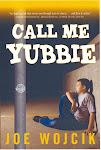The
Say No To Bullying Today programs educates parents on helping their children avoid the insidious poison of bullying through programs and education.
Here is another excerpt for our monthly newsletter
"Cup of Joe"The nurturing you give your child during their early years plays a pivotal role in their emotional development and improves their ability to handle advances by
bullies. Matter of fact their emotional reactions to situations in their childhood will later define them as adults. They are like pieces of clay waiting to be molded into individuals, absorbing everything around them like sponges and making decisions on how to react to their emotions. You can play a critical role in helping them react to an emotion in a positive healthy manner. How a child handles fear, anger, sadness, enjoyment, love, surprise, disgust and shame in their early years will determines their reactions as an adult.
Nature gives us an area in our brains that stores our emotional responses to circumstances that occur in our lives. This repository is called the amygdalae which means "almond" in Greek giving a description of their size in the limbic area of the brain.
We need this "data" to survive in our envirnoment. Once an established reaction is recorded there is no need to think about how to react the next time because the amygdalae feeds back the reaction in a flash.
The amygdalae send impulses that activate our central nervous system, our facial nerves, increasing our reflexes and getting ready for action. It also sends signals to release hormones that can either excite us or relax us. The amygdalae is also responsible for activitating the production of tears.
Why is this so important to know?
Long ago when one of our ancestors was confronted by a hungry tiger for the first time - he experienced the emotion of fear. He had to think of what to do. The brain had to tell the body to activate the central nervous system, increase heart rate and supply blood to the legs so he could start running to get away or climb a tree. That took time. So the brain recorded the physical response to the related emotion in the amygdalae for future reference. The next time it happened the amygdalae, sensing a need to react, looked back into its computer – fear registered – instantaneously the brain sent blood to large skeletal muscles (legs) giving him the energy needed to escape the ravenous tiger. It also kicked in each time he saw something like a lion or python.
The amygdalae reacts at an amazing speed of twelve thousands of a second - over twice the speed of processing a thought in the neocortex – the thinking part of the brain located in the frontal lobe.
Another example is when someone gets you angry. The thalamus sends the signal to the amygdalae that something is upsetting you. You feel angered, the amygdalae activates the central nervous system, heart rate increases and it immediately sends blood to your hands so you can pick up an implement and battle your foe or punch someone in the nose.
It’s the warehouse of emotional responses designed to help us.
There is a strong chance that you experienced every possible emotion in your first five years of life. You probably experienced anger, sadness, fear, enjoyment, love, surprise, disgust and shame. If we don’t do something to change them, those reactions are recorded and stay with us forever.
When we become adults these childhood emotional experiences serve as the basis of our reactions, and sometimes the amygdalae can hijack our thinking brain. When a situation occurs minutely similar to a situation you experienced as a child, especially a high-stress situation, the alarm goes off, bypassing the thinking brain. That is why when some people lose their temper they immediately strike out of anger.
At the same time, however, we need the survival reaction of the amygdalae. For example, when we are faced with a potential auto collision – sensing panic your heart rate increases, blood is rushed to the legs and you slam on your breaks out of fear of hitting another person or car – that’s the amygdalae kicking in. The amygdalae is fast.
What does all of this have to do with parenting?
The amygdalae can save our lives. But when conditioned for inappropriate responses – extreme anger, frustration, sorrow, even rage – the amygdalae can also destroy our lives.
As
parents, we are responsible for the situations in which our children are placed – especially during those all-important formative years. The better we equip our children to deal with problems, the better we direct their responses, the better their amygdalae will be programmed to help them in later life and the healthier their reaction to emotions they experience in life.
Part II of this article will appear in the July issue of
Cup of Joe. Make sure you catch the end. It will help you become a better parent and answer many questions that you might have on emotional reactions to events in our lives.
The Yubbie Foundation is a 501 (c) (3) charitable organization that is supported by the generous contributions made by private, and corporate, donations and grants that support the mission of the Foundation. Proceeds are allocated by donor request.





